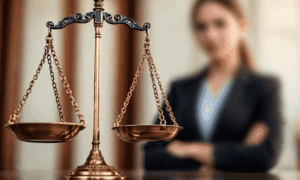Slip and fall incidents can cause severe injuries that render victims incapable of working, supporting their families, or covering medical expenses. Regrettably, slips and falls are attributed to over one million visits to the emergency room in the US alone.
If somehow you were injured from a slip and fall, you may have suffered from common injuries associated with this kind of fall accident. A trip and fall accident attorney can counsel you on everything you need to know and how to get adequate compensation for any medical bills.
Types of Slip and Fall Injuries That Qualify For Compensation
Though injuries can vary, here are the common injuries that receive compensation:
Fractured or Broken Bones: Fractured or broken bones are common after a fall, especially in those with osteoporosis or elderly accident victims. When bones are exposed to enough force, they can fracture in multiple areas, such as legs, arms, ribs, wrists, and hips.
Brain Trauma: Trauma to the brain can happen when you fall, even in cases where your head doesn’t hit the ground. Your brain can receive jolts without direct impacts and be seriously injured.
Ligaments/Muscles/Tendons (Soft Tissue): Even if a fall victim doesn’t suffer a break, they still can sustain significant soft tissue injuries and damage. Soft tissue injuries can occur in other regions of your body that don’t involve internal organs or bones.
Wrist/Ankle Sprain: It’s very common that when you’re about to fall, your instincts tell you to try to brace the fall by putting your arms out to stop the impact. You could also twist your ankle on the way down, causing a sprain or strain, which takes a decent amount of recovery time. Therefore, you could be eligible for compensation.
Knee Damage: The knee is an apparatus consisting of ligaments and bone. Injuring an ACL or MCL can take significant time to recover from. You might also tear ligaments and dislocate the patella, possibly requiring immediate reconstruction surgery.
Dislocated Shoulder: When you slip and fall, it’s expected that you could hit your shoulder on something on the way down or land on it and take the full impact of the fall. This action can result in your shoulder getting dislocated, which means that the bone in your upper arm will pop out of the shoulder socket.
Spine/Nerve Damage: An injury to the spinal cord is often disastrous because it can permanently alter your life. Nerve and spinal damage can cause weakness, tingling, intense pain, paralysis (extreme), or numbness in the area.
Bruises and Cuts: You can sustain a bruise or cut from internal or external damage when you fall. Some may not think a cut is that severe, but disfigurement can be a crucial loss. Always document the bruises and cuts with photos.
How Soon Should I See a Doctor After the Accident?
If possible, you should visit a doctor’s office immediately after a slip and fall accident. This way, you’re assured that your injuries have been documented by a medical professional, and they can trace them back to the source, which is the accident.
Seeking medical attention within 72 hours after the accident shows urgency, which is suitable for your claim.
Always follow the treatment plan outlined by your doctor, which could include diagnostic scans, x-rays, additional visits, etc. These actions will help assess the severity of the sustained damages.
Do I Qualify for Compensation After a Slip and Fall Accident?
When a slip-and-fall accident happens because of someone else’s reckless, careless, or negligent actions, you can seek compensation for the damages you incur.
That includes coverage for physical therapy, transportation in the ambulance, medical expenses, and more.
Seeking the assistance of a qualified lawyer can help you navigate the compensation claim process (including challenges by the defending party), document your injuries, and offer expertise along the way.



































